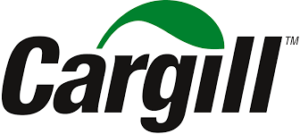May 30, 2019Soil health profitability data target of $850K grant from Cargill
 Management practices that improve soil health can be good for the farm and the environment, but farmers need information on economics when deciding whether to adopt these practices. To address this, Cargill and the Soil Health Institute have announced a new partnership to assess, demonstrate and communicate the economics of soil health management systems across North America.
Management practices that improve soil health can be good for the farm and the environment, but farmers need information on economics when deciding whether to adopt these practices. To address this, Cargill and the Soil Health Institute have announced a new partnership to assess, demonstrate and communicate the economics of soil health management systems across North America.
“Farmers are looking for a more robust picture of the economic benefits of investing in soil health on their farms,” said Ryan Sirolli, Cargill’s global row crop sustainability director. “By partnering with the Soil Health Institute, we will be able to provide the research and insight they need to understand how investing in soil health can provide both financial and environmental benefits. Together, we can help farmers build drought resilience, increase yield stability, reduce nutrient loss and increase carbon sequestration.”
Soil Health Institute CEO Wayne Honeycutt added: “The most desirable information on how soil health affects profitability comes from real-world, on-farm data. However, a challenge is that every farm is different, making it difficult to know how repeatable results are from one farm to another. Insight into how reproducible results are across different soils, climate zones and production systems can be obtained with experimental research plots; recognizing that research plots are very different from farms.”
Expanding partnerships
Supported by an $850,000 grant from Cargill, Christine Morgan, the Soil Health Institute’s chief scientific officer, will lead the SHI Agricultural Economist in developing enterprise budgets to compare profitability of soil health-promoting systems with conventional management systems on approximately 100 farms near 120 research sites across North America. “This will significantly expand our existing partnership with the National Association of Conservation Districts and USDA-NRCS for understanding profitability of soil health systems,” Morgan said.
“The bottom line is that when it comes to assessing economics, both types of information are useful — the research experiment and the farmer experience,” Morgan said. “That is why we are using a two-pronged approach for assessing profitability of soil health systems that integrates results from research sites with those experienced by nearby farmers.”
For more information, contact Byron Rath at [email protected].







